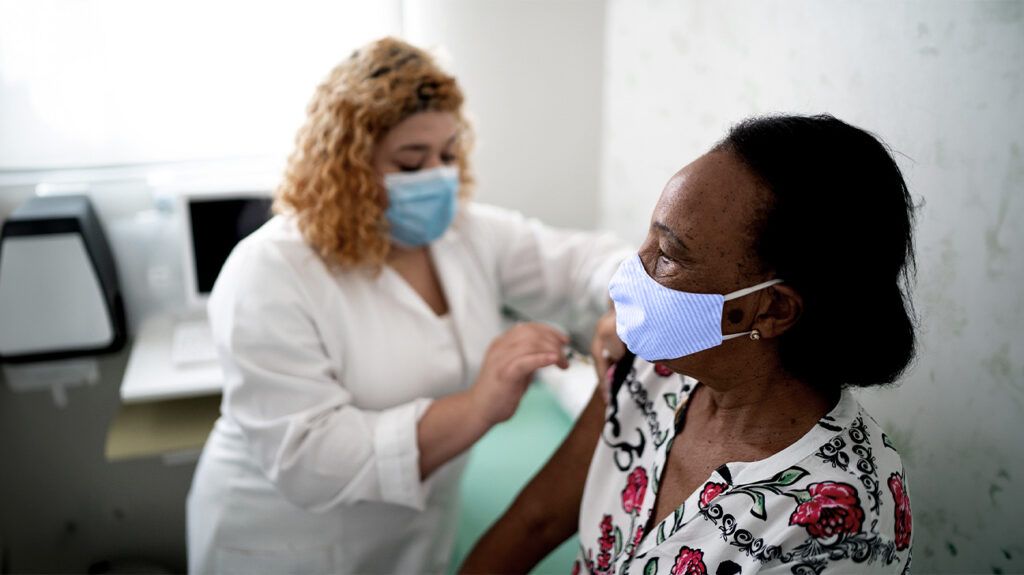Medicare Part B and Medicare Advantage may pay for allergy shots that are medically necessary.
Over-the-counter (OTC) treatments are available to manage mild allergic reactions. However, chronic reactions that do not get better with these treatments may need subcutaneous immunotherapy — which involves allergy shots — to reduce a person’s immune reaction to their trigger. They work by exposing an individual to tiny amounts of the allergen over time.
If a person’s doctor believes that allergy shots are medically necessary, Medicare may fund the treatment. This article explains the conditions and limitations of Medicare coverage for allergy shots.
Glossary of Medicare terms
We may use a few terms in this article that can be helpful to understand when selecting the best insurance plan:
- Out-of-pocket costs: An out-of-pocket cost is the amount a person must pay for medical care when Medicare does not pay the total cost or offer coverage. These costs can include deductibles, coinsurance, copayments, and premiums.
- Deductible: This is an annual amount a person must spend out of pocket within a certain period before an insurer starts to fund their treatments.
- Coinsurance: This is the percentage of treatment costs that a person must self-fund. For Medicare Part B, this is 20%.
- Copayment: This is a fixed dollar amount a person with insurance pays when receiving certain treatments. For Medicare, this usually applies to prescription drugs.

Medicare will pay for allergy shots when a doctor with experience in immunotherapy administers them. Medicare may request documentation confirming the suitability of a doctor to provide these services.
The shots should also take place in a clinical setting that can respond quickly to severe allergic reactions, which can be a side effect of allergy shots.
Conditions for which Medicare will approve payment include:
- allergic conjunctivitis
- allergic rhinitis, or hay fever
- allergic asthma, so long as asthma symptoms are stable
- hypersensitivity to insect stings
- animal dander sensitivity
- mold-induced rhinitis
The plans consider some uses of allergic immunotherapy to be investigational or experimental, which means that they are not medically necessary. These uses include food allergies, non-allergic asthma, and migraine headaches.
The duration of covered treatment varies between individuals, and Medicare will assess coverage on a case-by-case basis, according to a doctor’s advice. Medicare will consider a person’s preference, severity of the allergy, and response to previous treatment.
However, Medicare will stop paying for allergy shots if a person does not show evidence of clinical benefit after 2 years of treatment. The Centers for Medicare and Medicaid Services (CMS) define the clinical benefit of allergic immunotherapy as:
- reduced symptoms
- increased tolerance to the particular trigger or allergen
- the use of less medication over time
Medicare Part B covers allergy shots, as a person receives them on an outpatient basis. Part B pays for 80% of treatment costs, with the individual responsible for the remaining 20%.
Medicare Part C, also known as Medicare Advantage, would also pay for allergy shots, as it includes Medicare Part B. Private companies administer and sell these policies, so coverage may vary. However, Medicare requires that they pay at least as much as Original Medicare, which includes Part B.
Medigap, or supplemental insurance, is a private plan that can help an individual pay for out-of-pocket costs from Medicare coinsurance or deductibles. In the case of allergy shots under Part B, this would help fund the 20% coinsurance.
Learn about how Medicare parts A and B differ.
The costs of allergy shots may vary depending on:
- a person’s level of coverage
- the components or allergens in the shot
- the frequency of the shots
- what the clinic charges as a consultant’s fee or administration fee
A 2021 study found that allergy shots generally cost around $748 to $849 per claim. Around 1 in 5 of these claims led to charges amounting to $1,000 or more, but the out-of-pocket costs were not clear from the data.
Does Medicare cover allergy testing?
Medicare Part B covers allergy testing. As Medicare Advantage also includes Part B, this will also provide coverage for allergy tests.
Learn more about Medicare coverage for allergy testing.
Does Medicare cover allergy treatments?
Medicare Part B covers medically necessary allergy shots that meet certain criteria. Medicare also pays for prescription medications from Part D, which may include allergy medications.
Does Medicare cover sublingual immunotherapy?
Medicare does not pay for sublingual immunotherapy, as current evidence does not support its effectiveness in reducing most allergies.
The Food and Drug Administration (FDA) has not approved most forms of sublingual immunotherapy, in which an individual places a pill under the tongue for several minutes before swallowing it while it dissolves.
Medicare resources
For more resources to help guide you through the complex world of medical insurance, visit our Medicare hub.
Medicare Part B pays for 80% of the costs of allergy shots for some allergies. However, a doctor needs to confirm that previous treatments have not successfully reduced allergy symptoms and that the shots are medically necessary.
Coverage may stop after 2 years if the individual is no longer getting clinical benefits.
